NABJ Winners Tell Colleagues to Proceed Undeterred
Black Journalist’s Series Surfaces His Personal Toll
[btnsx id=”5768″]

NABJ Winners Tell Colleagues to Proceed Undeterred
Walter Hussman, the Arkansas publisher and namesake of the journalism school at the University of North Carolina – Chapel Hill, wasn’t at the virtual awards ceremony of the National Association of Black Journalists Saturday night.
Winners of the association’s Thumbs Down award aren’t expected to be, and Hussman, widely credited with opposing tenure for the “1619 Project’s” Nikole Hannah-Jones, was no exception. Hussman inspired a national controversy that led to Hannah-Jones leaving the school last summer even before she started, heading instead to Howard University. And Hannah-Jones, who writes for The New York Times Magazine, is a former NABJ Journalist of the Year. (fourth item)
Now, to the approval of her colleagues, Hannah-Jones is touring the country promoting the newly released book version of “The 1619 Project,” while Hussman, a media magnate who like Hannah-Jones is a UNC alum, is finding it hard even to meet with the UNC journalism faculty.
“When Walter Hussman returned to UNC-Chapel Hill this week, he hoped to begin mending relations with the journalism school that bears his name,” Joe Killian wrote Oct. 15 for NC Policy Watch. “But that proved to be difficult, given the mega-donor’s lobbying against the hiring of Pulitzer Prize-winning journalist Nikole Hannah-Jones.
“The episode, which culminated in Hannah-Jones declining a tenure offer this summer in favor of Howard University, generated national headlines. It also sparked an ongoing debate about race, journalism, academic freedom and donor influence at the university. It strained the relationship between Hussman and the journalism school, prompting faculty and students to consider deeper questions about whether his values align with those of the school.”
Hussman, 74, says he is simply old-school about journalism. “Hey, there’s nothing wrong with advocacy in journalism,” Hussman told the student Daily Tar Heel in June.
“I just believe that belongs in the opinion pages, not the news pages.” His statement of core news values hangs in the lobby of Carroll Hall, the home of UNC’s journalism school.
Hussman told the Poynter Institute’s Rick Edmunds in July that he had not meant to intervene in the Hannah-Jones dispute, but conceded that he did not think highly of her scholarship.
Therein lies the conflict with the values of the National Association of Black Journalists, which gives the Thumbs Down “annually to an individual or organization for especially insensitive, racist or stereotypical reporting, commentary, photography, or cartoons about the Black community or for engaging in practices at odds with the goals of NABJ.” This year’s went to Hussman and the UNC board of trustees.
Killian added, “In a July survey, an overwhelming majority of the faculty members rejected the notion that Hussman’s values represented the school and said the school should establish its own values statement.
“Faculty members at the school – and journalism experts across the country – take issue with portions of Hussman’s core values statement. Among them are the assertion that ‘impartiality is the greatest source of credibility’ and that while the pursuit of truth is ‘a noble goal,’ truth is ‘not always apparent or known immediately.’
“Historians and journalism scholars – including some of UNC’s most prominent journalism alumni – point out that those sentiments have been used throughout journalism history to preserve the societal status quo and minimize the voices of women and racial, ethnic and religious minorities. . . .”
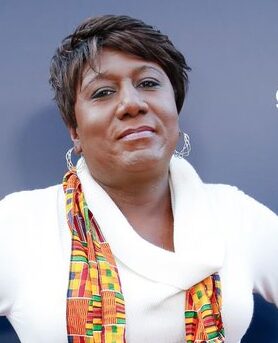 NABJ’s awardees did not spend any time talking about Hussman or people who think as he does. Instead, they reassured each other that they can achieve whatever they wanted to, celebrated their predecessors and mentors, and praised stellar work produced over the past year. They celebrated the legacy of the Black press even as they honored a 21st century champion of transgender rights, the late Monica Roberts (pictured), founder of TransGriot, who was inducted into the NABJ Hall of Fame.
NABJ’s awardees did not spend any time talking about Hussman or people who think as he does. Instead, they reassured each other that they can achieve whatever they wanted to, celebrated their predecessors and mentors, and praised stellar work produced over the past year. They celebrated the legacy of the Black press even as they honored a 21st century champion of transgender rights, the late Monica Roberts (pictured), founder of TransGriot, who was inducted into the NABJ Hall of Fame.
“When you do the work, good things will happen,” entrepreneurial journalist Roland S. Martin, another Hall of Fame inductee, told the group. Career achievements are fine, but “it’s what did he do to make someone else’s life better” that counts, said Art Norman, the veteran Chicago broadcaster who won the Chuck Stone Lifetime Achievement Award.
“Don’t seek permission to be great. Stop carrying what America put on us a long time ago,” said Rochelle Riley, the Detroit journalist now director of arts and culture for the city of Detroit. “Don’t let anyone else choose your path, or you will look behind you and not like where you’ve been.”
“You can’t let the naysayers get in your head,” advised Neil Foote, educator, media and public relations executive and longtime diversity advocate, another Hall of Fame inductee. “You have to control your own destiny. You must tap into this wonderful network of NABJ that has supported me over the 40 years that I’ve been in this business.”
The Emerging Journalist of the Year, Malika Andrews of ESPN, said, “Young journalists are necessary. . . . Journalism is my activism. It’s our activism.”
The awards ceremony, with its polished production values, was emceed by CBS’ DeMarco Morgan, political analyst Zerlina Maxwell and actress Kim Coles and modeled after NABJ’s intricate virtual conventions of 2020 and 2021, also staged during the COVID pandemic.
“We had approximately 400 registrants at the top of the event,” NABJ spokesperson Kanya Stewart messaged Journal-isms. “We will have final numbers in the coming week, which includes on-demand viewing, and from our social networks.”
With the notable exception of the Thumbs Down award and a few others, such as chapters of the year, all of the major winners were announced in October.
But that did not detract from the proceedings or the timeliness of the messages.
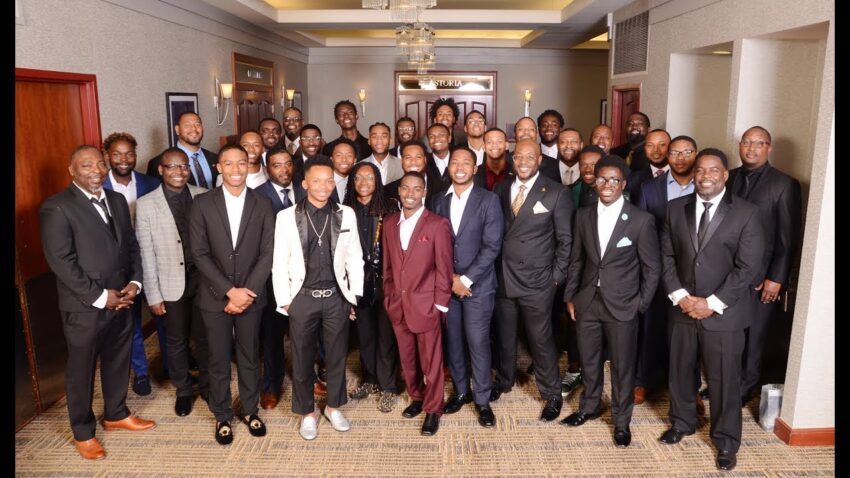
Tenisha Taylor says boys like those who killed her father are the inspiration behind the Ezekiel Taylor Scholarship Foundation. Many young boys in Chicago face difficult situations, she said, but she wants them to choose education over retaliation.
As the nation recoils from the deadly Michigan high school shooting that took the lives of four students, Tenisha Taylor, a media and public relations consultant and former executive producer at CNN, accepted the Angelo Henderson Community Service Award. Taylor founded the Ezekiel Taylor Scholarship Foundation named after her father, who was shot and killed in 1982 in a robbery on his way home from church. The foundation has so far awarded 100 scholarships to African American men affected by gun violence.
(The Philadelphia Inquirer is holding an online discussion of gun violence as a public health issue this Wednesday.)
The racial reckoning was acknowledged in the Journalist of the Year award to Libor Jany of the Star Tribune in Minneapolis, who covered George Floyd’s killing while Floyd was in police custody in 2020. Jany admitted to being conflicted in “accepting an award based on so many people’s grief, pain and heartache.”
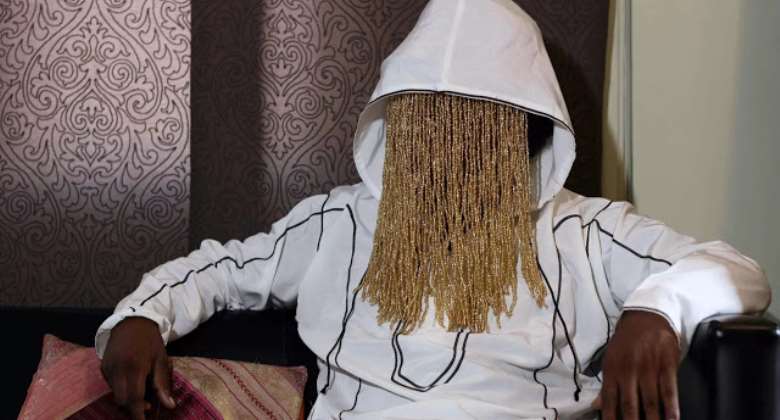 The Percy Qoboza Award, given to a foreign journalist, went to Ghanaian Anas Aremeyaw Anas (pictured), “known for his dangerous and daring investigative works,” in the words of the newspaper Modern Ghana. Anas was not there in person; photographs of him show his face covered.
The Percy Qoboza Award, given to a foreign journalist, went to Ghanaian Anas Aremeyaw Anas (pictured), “known for his dangerous and daring investigative works,” in the words of the newspaper Modern Ghana. Anas was not there in person; photographs of him show his face covered.
With the Howard University student newspaper, The Hilltop, the focus of a scolding by the Student Press Law Center for “interference” by its adviser, the Howard chapter of NABJ was named student chapter of the year. “These young journalists were indomitable in fighting for press freedom on their campus. We are so thrilled!” NABJ President Dorothy Tucker said in a tweet.
Comedian Cody Wilkins, reviewing the year, chipped in a joke at the Howard administration’s expense. “As Halloween approached in October, news broke that the scariest place in all of Washington, D.C., was actually Howard University’s housing facilities. Students expecting to be molded into the next generation of Black intellectuals instead found generations of black mold in their drywalls,” he said.
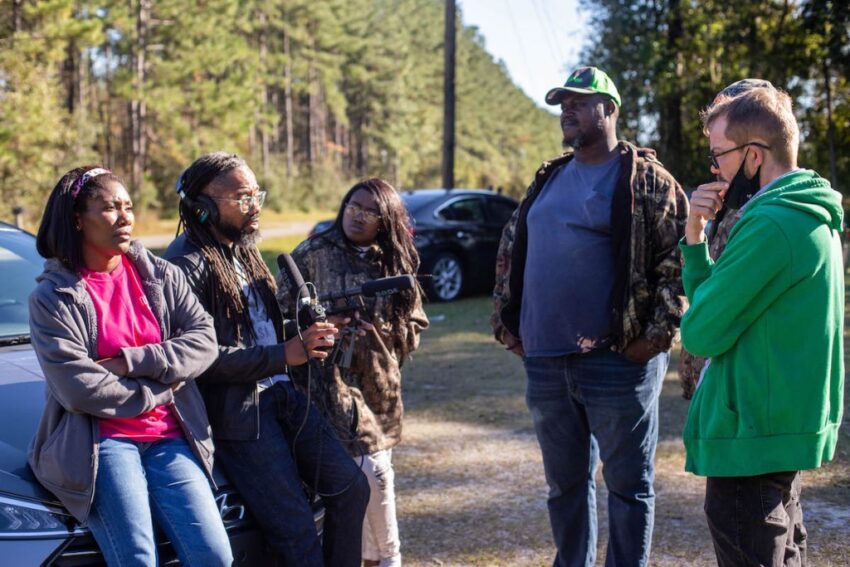
Black Journalist’s Series Surfaces His Personal Toll
“This week’s episode of Reveal is unlike any we’ve produced in nearly seven years on the air,” producer Kevin Sullivan writes in an email to followers. Reveal is a project of the Center for Investigative Reporting. “It begins with the haunting parallel stories of two civil rights icons: Medgar Evers and Nina Simone. It’s the perfect capstone to our seven-part series, Mississippi Goddam: The Ballad of Billey Joe.
“If you’ve been following along, you know that our host Al Letson and reporter Jonathan Jones have spent the last three years investigating the 2008 death of a Black teenager named Billey Joe Johnson Jr. (pictured below) during a traffic stop with a White sheriff’s deputy in Lucedale, Mississippi.
“Al started the series with a promise to the Johnson family that he would review the case and share everything with them. ‘If I didn’t tell this story, no one would,’ he said.
“We may never know exactly what happened to Billey Joe the morning he died. But ultimately, we laid bare tremendous flaws in the investigation.”
Based on his reporting, Letson calls for the case to be reopened.
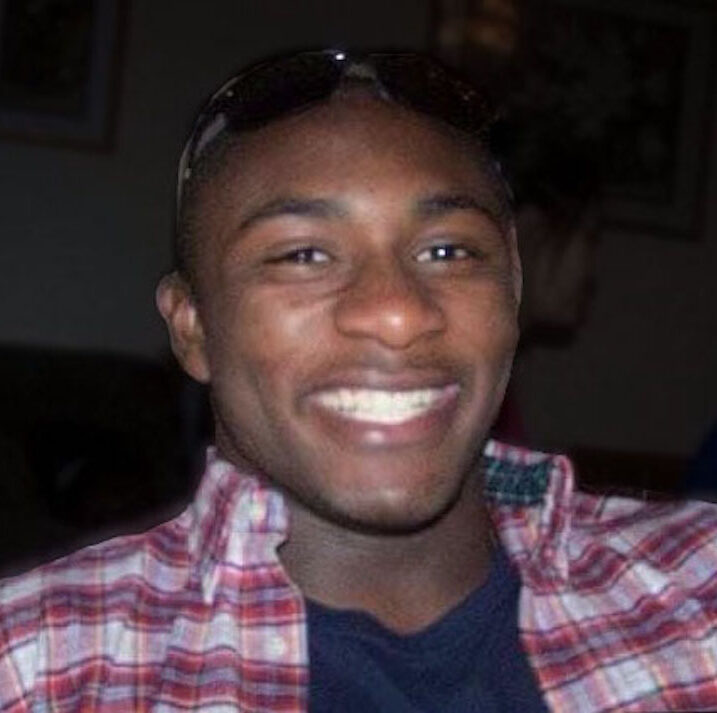 In that closing episode, which debuted Saturday on public radio, Letson relates his reporting to his identity as a Black journalist, a reflection familiar to many who have covered the violent deaths of other African Americans.
In that closing episode, which debuted Saturday on public radio, Letson relates his reporting to his identity as a Black journalist, a reflection familiar to many who have covered the violent deaths of other African Americans.
“When I found this story in 2011, I tried really hard to get a news organization to take it on. I’d made that promise, but the truth is I was hoping someone else would fulfill it for me,” Letson said. “But years passed and no one picked it up. And in that time, I had all these excuses of why I couldn’t go back to Mississippi and look into it. But the truth is, I was scared. Not of the police or reporting in Mississippi. I wasn’t sure I could carry the weight.
“See, being a Black journalist and telling stories like this, it takes a lot from you. It reignites old trauma. It stays with you long after the workday is done. And it will never be the neat Hollywood ending we all long for. But then I joined an organization with the investigative muscle to do it. And I knew that if I didn’t tell this story, no one would.
“So I took a deep breath and dove in. In the years since, there have been two times that I’ve had to stop and take a break, just breathe. The first was when George Floyd died. It was an intense week. If you remember, Breonna Taylor was killed a few months before; the video of the killing of Ahmaud Arbery had just been released. And then George Floyd. And for me, it’s not just seeing another Black person killed violently, it’s also the debate [about] that person and by extension Black people’s humanity. It was too much. And so I set the story down for a week.
“The second time was almost a year later, when Officer [Derek] Chauvin was being tried for killing George Floyd. Ten miles away from that courthouse, Daunte Wright, a 20-year-old Black man, was killed by Officer Kim Potter.
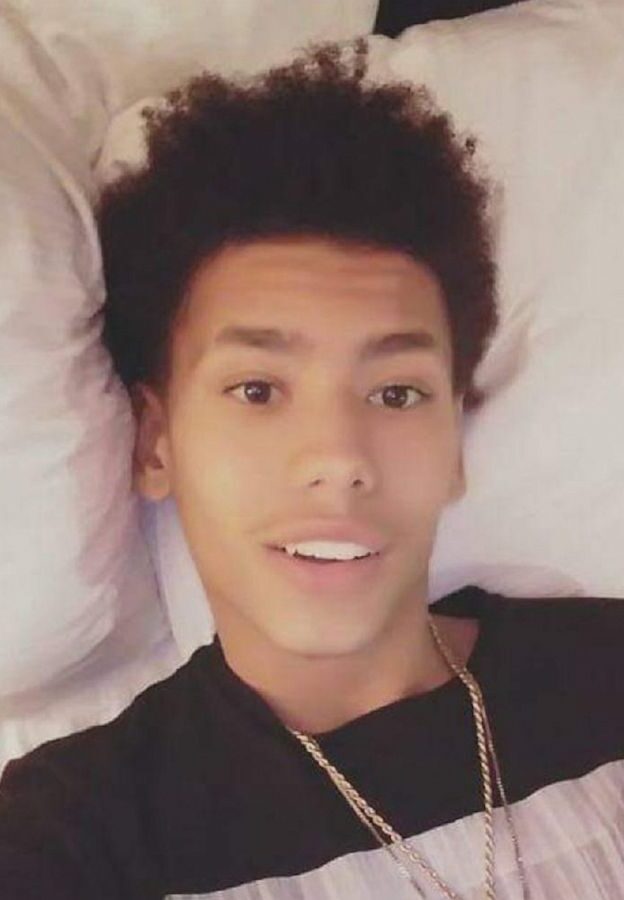 “The video, like all these types of videos, was bad, but what took my breath away was Daunte’s picture (pictured). He looks so much like my youngest son, and it’s shattered me. I couldn’t get his image out of my head. I tried to keep my son close to me that week like I could protect him, but the truth is I can’t. And that’s what stories like these remind me of. Not just of my own mortality, but of my children’s as well. So I pulled away [from] the series for a few days and reset, but the Johnsons couldn’t. They have to live with this day in and day out.
“The video, like all these types of videos, was bad, but what took my breath away was Daunte’s picture (pictured). He looks so much like my youngest son, and it’s shattered me. I couldn’t get his image out of my head. I tried to keep my son close to me that week like I could protect him, but the truth is I can’t. And that’s what stories like these remind me of. Not just of my own mortality, but of my children’s as well. So I pulled away [from] the series for a few days and reset, but the Johnsons couldn’t. They have to live with this day in and day out.
“We don’t know what happened to Billey Joe, but given the history of this country, of Mississippi, the way his family was treated, the lack of thorough investigation, of course, they feel the trauma of every death that reminds them of Billey’s, and their story is not an outlier.
“The last time we were with the Johnsons, we took the family out to dinner. . . . It hit me that all this time I’ve been trying to give them hope, but it was never mine to give. They already had it. Like millions of Mississippians throughout time, their hope is born when their babies open their eyes for the first time and look up, and their parents dream of a future where they can live and thrive. History holds no weight in that moment. They defy gravity until tragedy brings them down.
“And even then, it can’t hold them for long because living, loving and laughter is an act of resistance, resilience and hope. And while Billey Joe Jr. and his mother, Annette, are gone, the Johnsons do their best to move forward. . . .”
“At the end of the night, Tiffanie [Johnson],” Billey Joe’s older sister, “gave me a hug and thanked me and JJ for everything we’d done for the family. And after 10 years of holding it so tight, that the promise I gave was fulfilled. . . .”
A Black Journalist as Miss USA!
December 1, 2021
A Black Journalist as Miss USA!:
‘It’s Been Very Hard to Juggle. . .’
‘Ballistic’ Over ‘Famous Baby Daddies’:
Station Won’t Apologize, Loses Partner
Reward Offered in Killing of Reporter’s Guard
CBS Names Ciprian-Matthews to New VP Role
EPA Reacts to Reporting on Environmental Racism
New Tax Credit Not Much Help to Black Press
‘Indignity. Apathy. Lack of Respect.’ Familiar?
AAJA Removes Disputed Style Entry on ‘Taiwan’
Short Takes: brutal migrant detention centers; Joshua Johnson; Associated Press’ racist history on lynching stories; Aungelique Proctor; weaponization of “woke”; South African media and COVID; Clint Smith; Wil Haygood; Rebecca Carroll; corporate pledges to advertise in Black media; Byron Allen, Armstrong Williams and FCC nominee Gigi Sohn; frustration at not attracting Latinos; Maribel Lopez; Toriano Porter;
Memphis Commercial Appeal; Chicago high school journalists; One America News Network’s targeting of Indigenous; whiteness of Canadian newsrooms; Ethiopian restrictions on media; India’s accusations against reporters; European Parliament alarm over Somalia; spying on Salvadoran journalists; Mozambique firing on journalists
[btnsx id=”5768″]
Elle Smith talks pageant life as she prepares for Miss USA competition (Credit: YouTube/WHAS-TV, Louisville, Ky.)
‘It’s Been Very Hard to Juggle. . .’
Elle Smith, who worked as a “multi-skilled journalist” at WHAS-TV in Louisville, Ky., while touring the state as Miss Kentucky, was crowned Miss USA Monday night in Tulsa, Okla.
Smith, 23, is set to compete for the Miss Universe crown in mid-December.
One seldom hears about journalists winning beauty pageants, though it’s not unheard of. In July, local television reporter Christina Thompson was chosen Miss Virginia USA 2021, and in England, the tabloid Sun reported, a journalist won a pageant she was sent to cover.
But it’s rarer still for a Black journalist. In 1971, Oprah Winfrey was crowned Miss Black Tennessee — but at the tender age of 17.
Smith was crowned by Miss USA 2020, Asya Branch, a Black student at the University of Mississippi majoring in integrated marketing communications in the School of Journalism and New Media.
“It’s been hard, very hard to juggle a full-time job, the role of Miss Kentucky and prepping for Miss USA,” Smith said, Krista Johnson and Kirby Adams wrote in the Courier Journal.
“I don’t think I would have been able to accomplish this without such [a] supportive work team at WHAS because I was getting up at 5:30 a.m. to work out, then hop into a morning editorial meeting with WHAS, then spent the day reporting, then I would do another workout at 7 p.m., eat dinner at 9 p.m. and then until 10 p.m. I was doing interview prep.”
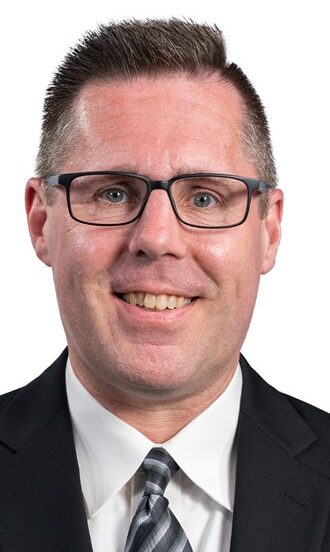 With Smith’s achievement, she is no longer with the station, News Director Chris Gegg (pictured) messaged Journal-isms on Wednesday.
With Smith’s achievement, she is no longer with the station, News Director Chris Gegg (pictured) messaged Journal-isms on Wednesday.
“Now that Elle has been crowned Miss USA, she is heading to Israel to compete in the Miss Universe pageant and is making that her full-time focus. We wish her all the best, and will be cheering her on along with the rest of America.
“We have policies in place regarding what our journalists can and cannot do, and have conversations directly with employees to ensure that activities are not in conflict with news reporting.”
Smith’s alma mater, the University of Kentucky, said on Nov. 9, ” If she wins Miss USA, she will give her Miss Kentucky USA title to the Kentucky runner-up and move to Los Angeles on a full salary to represent the nation for a year.“
Soo Kim of Newsweek had reported that “Smith has represented her state as Miss Kentucky while working full-time as a reporter, making appearances at ball games and other events while also appearing on camera to cover news stories.
In her Miss USA bio, Smith said that being a journalist in America today is “an honor and a role I take very seriously.”
What a moment! #NABJCongrats to our very own @ellesmithtv of @WHAS11 who is the new @MissUSA !!!!! ? ? ? https://t.co/AC7qDFKZzN
— #NABJ Headquarters (@NABJ) November 30, 2021
According to the station, “Elle graduated from the University of Kentucky in May 2020 with a B.A. in Broadcast Journalism and a minor in Political Science.
“As a Wildcat, she was the vice president of UK’s National Association of Black Journalists chapter, a reporter for the UK Student News Network and a videographer for UK Athletics and SEC Network.”
“Her experiences at UK also carried her into the whirlwind world of pageantry. She competed in her first pageant in May 2021, representing Georgetown and taking home the title of Miss Kentucky USA.”
Smith landed her job at WHAS11 — her first — through an NABJ conference, Kim wrote in Newsweek.
At the Miss USA pageant, Smith “spoke on sustainability and encouraging businesses to be more environmentally conscious,” Insider reported.
“We’ve got to look at it from a macro and also a micro level,” Smith explained. “So at the macro level, companies need to switch to green energy—I think that’s something we can all agree on.”
“But then, at the micro level, we all know how to reduce, reuse, and recycle, and those are all things we can implement in our daily life,” she added.
Smith competes for the Miss Universe title in Eilat, Israel, on Dec. 12. The Miss Universe Organization said most of the 80 contestants have arrived in Israel and that the event will be held as planned with strict coronavirus protocols.
On Monday, organizers said a contestant tested positive for COVID-19 after arriving in Israel and was taken to a government-run isolation hotel. They said she was fully vaccinated and had been tested prior to departure, the Associated Press reported.
- Dahleen Glanton, Chicago Tribune: There she is, and she’s black — why crowning African-American pageant winners still matters (May 7, 2019)
- Wudan Yan, Poynter Institute: Journalism isn’t who you are. It’s what you do
‘Ballistic’ Over ‘Famous Baby Daddies’

Station Won’t Apologize, Loses Partner
Oh, yes, they did.
A San Diego radio show staged a skit in which the hosts had to guess which of two named and pictured celebrity fathers had the most children with the most partners. Of the 18 celebrity fathers named in the segment, nine were Black.
“A day after the San Diego chapter of the NAACP criticized a segment on the KUSI ‘Good Morning San Diego Show’ about ‘Famous Baby Daddies’ as racist, a KUSI executive said the station will no longer provide a platform to ‘The DSC Show,‘ ” Morgan Cook reported Nov. 17 for the San Diego Union Tribune.
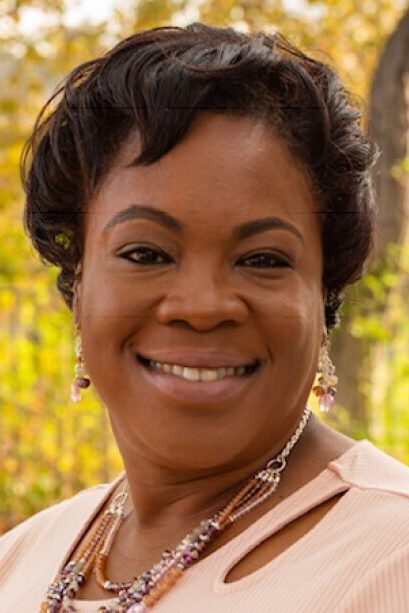 The episode is heading for a productive ending, Francine Maxwell (pictured), president of the San Diego NAACP, told Journal-isms by telephone on Tuesday.
The episode is heading for a productive ending, Francine Maxwell (pictured), president of the San Diego NAACP, told Journal-isms by telephone on Tuesday.
Maxwell said she received more than 70 irate calls the morning ‘The DSC Show’ skit aired — “my community went ballistic” — and many wanted to stage a protest in front of the station. But, Maxwell recalled, “I said, ‘stand down, give me a minute.’ “
KUSI had a good reputation in the community, she added. “We have organizations that would never have been able to get publicity if it hadn’t been for KUSI.” So Maxwell contacted the station leadership. They explained that the feed from ‘The DSC Show’ wasn’t properly screened before airing.
The Union Tribune picks up the story: Steve Cohen, news director for KUSI TV, said Nov. 24 “that KUSI has asked ‘The DSC Show’ to apologize to KUSI viewers for the segment’s racial insensitivity.
“ ‘KUSI believes that it is our goal to always present content that does not demean or appear insensitive to any minority, racial or ethnic group,’ Cohen said in a statement. ‘This past Monday, a feature segment aired that did not meet that standard. The segment created by the 101.5 KGB radio program, The DSC Show, was inappropriate and an affront to our African/American community and our viewers.”
“The statement said KUSI asked 101.5 KGB to offer an apology on KUSI and officials at KGB declined.
“ ‘As a result, KUSI has decided to no longer provide a platform for the KGB – DSC Show,’ the statement said. ‘KUSI will be contacting our NAACP chapter and its president to further discuss this incident. . . .’
“KUSI-TV is an independent local station and is not affiliated with a broadcast network. It is owned by McKinnon Broadcasting Co. McKinnon Broadcasting General Manager Michael McKinnon has been described in news reports as a long-time supporter of politically conservative candidates and causes. . . .”
At a meeting Nov. 22, the NAACP and station management “had a wonderful discussion,” Maxwell said. The two are working together on possibly airing public service announcements, providing internships, implementing cultural sensitivity and implicit bias training, and empowering staffers to be more active in calling out insensitivity.
The NAACP chapter also wants a more public apology.
 Cohen messaged Tuesday, “I have no update at this time. My comments are quoted accurately.”
Cohen messaged Tuesday, “I have no update at this time. My comments are quoted accurately.”
iHeartMedia says on its website that it is “the #1 audio company in the United States, reaching 9 out of 10 Americans every month – and with its quarter of a billion monthly listeners, has a greater reach than any other media company in the U.S.”
The company did not respond to a request for comment, but Maxwell said its representatives requested a one-on-one meeting with her. “But I don’t do those.”
Melissa A. Forrest, president of the San Diego/Arizona Region at iHeartMedia and general manager of KGB, the operation Cohen said refused to apologize, likewise did not respond to an inquiry from Journal-isms.
Maxwell said, however, that she had been told that the incident might have affected iHeart’s sharing relationships with other outlets. “A couple of stations let them know this may have been the last straw,” she said.
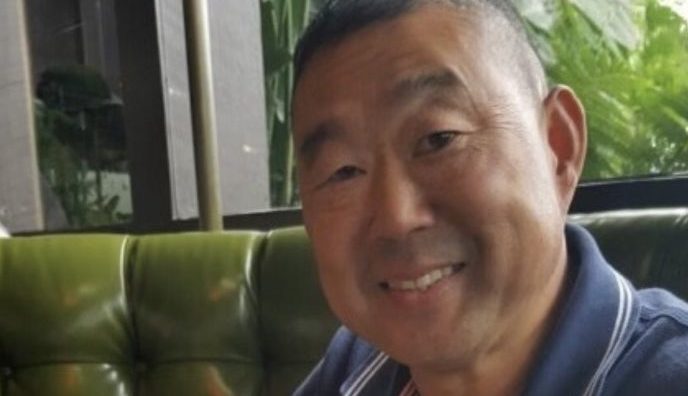
Reward Offered in Killing of Reporter’s Guard
A fundraiser and trust fund have been created for the family of Kevin Nishita, a security guard and former police officer who died Saturday after being shot in Oakland during an attempted robbery of a news crew’s camera equipment, Gabriel Greschler reported Monday for the Bay Area News Group.
As of Wednesday, the online fundraiser received more than 580 donations and had brought in more than $41,000.
Andres Picon and Danielle Echeverria reported Saturday, updated Sunday, for the San Francisco Chronicle that Nishita was assigned to a KRON reporter covering the Monday night burglary of the Prime 356 clothing store on the 300 block of 14th Street. Television news crews have bodyguards because they’re often targeted for their equipment while working in communities with high crime rates, according to former KRON reporter Stanley Roberts.
“As Nishita stood outside the store with the reporter at about 12:20 p.m., a group tried to rob the pair and the security guard was shot in the abdomen, Oakland police spokesperson Kim Armstead said.
“Crime Stoppers of Oakland, the city’s Police Department and other contributors are offering a reward totaling $32,500 for information leading to the arrest of anyone involved in the crime.”
Roberts said the reporter, who has not been identified, was covering the theft for KRON when three men pulled up in a car, one with a gun in hand, and tried to take the reporter’s camera. The security guard was shot when he intervened, Roberts said, according to the Chronicle.
The Radio Television Digital News Association said in a statement Tuesday, “Violence against journalists has no place in the world, but unfortunately it is far too common — and increasing. RTDNA has SAFE Journalist Training & Resources available to help journalists assess risk and stay as safe as possible during daily reporting.
“Threats, violence, and even the coverage of violence can negatively impact the mental health of journalists, and Kevin’s death has impacted many in the Bay Area journalism community. RTDNA has a Newsroom Mental Health Resource Guide available to all, and we encourage anybody who needs it to seek counseling and address any mental health needs.
“Nobody should fear for their life simply for reporting the news — or protecting those who do.”
The proposed Journalist Protection Act, reintroduced in July by Rep. Eric Swalwell, D-Calif., Sen. Richard Blumenthal, D-Conn., and Sen. Bob Menendez, D-N.J., would make it a federal crime to assault journalists during the course of their duties. It is pending in the House Judiciary Committee.
CBS Names Ciprian-Matthews to New VP Role
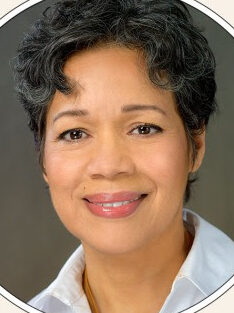 “CBS News has promoted Ingrid Ciprian-Matthews (pictured) to a new role as executive vp of newsgathering, overseeing all network newsgathering worldwide for the news division,” Alex Weprin reported Tuesday for the Hollywood Reporter.
“CBS News has promoted Ingrid Ciprian-Matthews (pictured) to a new role as executive vp of newsgathering, overseeing all network newsgathering worldwide for the news division,” Alex Weprin reported Tuesday for the Hollywood Reporter.
Ciprian-Matthews, a native of the Dominican Republic, is one of the highest-ranking Latinas in mainstream television.
“With her new role, Ciprian-Matthews will step aside as CBS’ Washington bureau chief,” Weprin continued. “According to an email to staff from CBS News and Stations co-president Neeraj Khemlani, the network has ‘begun our search for a new Washington Bureau chief and appreciate Ingrid continuing to support the bureau until a replacement is in place.’
“Ciprian-Matthews was named the network’s D.C. bureau chief in January, after serving in the role in [an] interim capacity since last summer. She previously served in a number of executive roles at CBS News, and also oversaw a number of the network’s key bureaus, including in London and New York. . . .”
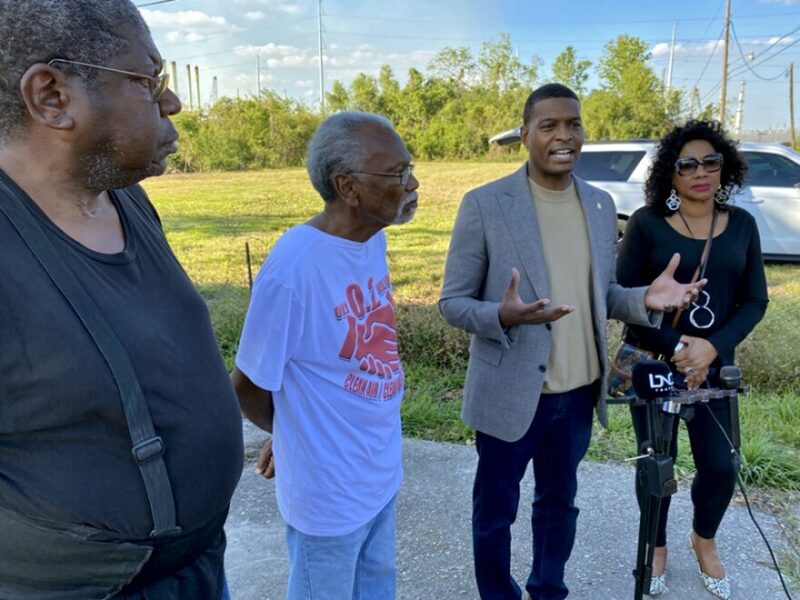
EPA Reacts to Reporting on Environmental Racism
“ProPublica found more than 1,000 toxic air hot spots across the country, and determined Black residents were disproportionately at risk,” ProPublica reported Nov. 24 over a story by Ava Kofman. “Environmental experts called the Environmental Protection Agency’s response to our investigation historic and a ‘radical change in tone.’ “
Two days after the initial report, the EPA announced that Administrator Michael S. Regan would visit the communities featured in the reporting.
“During last week’s ‘Journey to Justice’ trip across the South, Regan toured the Houston ship channel, the Louisiana community of Mossville and a stretch of land along the Mississippi River known as Cancer Alley — places that we identified as among the largest hot spots of toxic air pollution in the country.”
Regan told ProPublica, “We’ve looked very carefully at your reporting and we’re incorporating much of it into our refined and revised system ourselves as well, so that we can begin to address these issues. We’re working on just how we can do that in a way that gives us the ability to move forward, set standards, enforce existing laws and do it in a manner where we believe that it is legally and scientifically defensible.
“One of the reasons I’m on the road for five days is to be on the ground, listening directly to these communities and taking this information back. This is an all-hands-on-deck approach.”
Darryl Fears added Sunday in the Washington Post, “Black people are nearly four times as likely to die of exposure to pollution than White people. According to ‘Fumes Across the Fence-Line,‘ a recent study by the Clean Air Task Force, African Americans are exposed to 38 percent more polluted air than White Americans, and they are 75 percent more likely to live in communities that border a plant or factory.”
New Tax Credit Not Much Help to Black Press
“A provision in President Joe Biden’s $1.75 trillion Build Back Better plan will benefit community news publishers across the United States by providing a tax credit that rewards local news organizations for employing journalists,” Edward Henderson reported Thursday for California Black Media.
 “But some Black newspaper publishers in California — and across the country — say, although the proposal, valued at $1.67 billion, is rooted in good intentions, it will not benefit their businesses.
“But some Black newspaper publishers in California — and across the country — say, although the proposal, valued at $1.67 billion, is rooted in good intentions, it will not benefit their businesses.
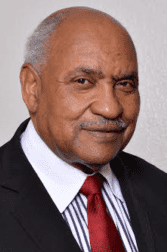 “ ‘My first reaction was to applaud. This would be the first time a president has put forth a plan that acknowledges we even exist,’ said Dr. John Warren (pictured), publisher of the San Diego Voice & Viewpoint, the city’s largest Black newspaper. ‘Congress passed the Preservation Act in 1970, but that didn’t protect us from the losses we saw a few decades later.’
“ ‘My first reaction was to applaud. This would be the first time a president has put forth a plan that acknowledges we even exist,’ said Dr. John Warren (pictured), publisher of the San Diego Voice & Viewpoint, the city’s largest Black newspaper. ‘Congress passed the Preservation Act in 1970, but that didn’t protect us from the losses we saw a few decades later.’
“Warren points out that the tax credit is not a big event for businesses that have losses.
“ ‘You would have to get a gain to benefit. Most of our papers are not making profits, at least not substantially, due to the pandemic and other factors,’ said Warren. ‘I think it could have been better done if there were bids — bids for public work jobs, etc, to be advertised in community newspapers. I would consider that something meaningful and sustainable.’ “
Nationwide, there are fewer than 5,000 community newspapers, according to Warren. “Of that number, Black papers account for less than 200.
“ ‘At one point we had about 600 papers in the country,’ Warren said, referring to Black-owned and operated publications. . . .”
- Marc Tracy, New York Times: Local News Outlets Could Reap $1.7 Billion in Build Back Better Aid

‘Indignity. Apathy. Lack of Respect.’ Familiar?
“In Mississippi and much of the country, police officer-involved death investigations tend to be shrouded in secrecy,” Reveal, a radio show and podcast from the Center for Investigative Journalism, announced in a November email. “It’s extremely difficult to access information about the grand jury, the medical examiner and the district attorney.
“But that didn’t deter us.
“We devoted more than three years looking into the case of Billey Joe Johnson, a Black teenager who died during an early-morning traffic stop by a White police officer in Mississippi. As we listened to police interview tape, reviewed crime scene photos, interviewed grieving but relentless family members and looked at what investigators did and didn’t do, we saw some glaring themes: indignity. Apathy. A lack of respect.
“Along with the family of Billey Joe, we were committed to finding out: How did justice fail in this case?
“We hope you will find some time to listen to our serialized podcast, Mississippi Goddam: The Ballad of Billey Joe, before the last episode airs Dec. 4.”
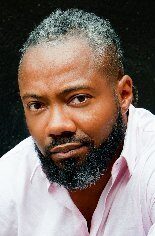 “Reveal” host Al Letson (pictured) told NPR’s Ailsa Chang on Nov. 4 that, “this story is all about race. What we’re trying to do is understand the systems that come into play with Billey Joe Johnson’s life and his death. And also, you know, I think that when we looked at the investigation, there was a big hole in the investigation, and that hole was the size of Billey Joe’s family. Like, they’ve totally been left out.
“Reveal” host Al Letson (pictured) told NPR’s Ailsa Chang on Nov. 4 that, “this story is all about race. What we’re trying to do is understand the systems that come into play with Billey Joe Johnson’s life and his death. And also, you know, I think that when we looked at the investigation, there was a big hole in the investigation, and that hole was the size of Billey Joe’s family. Like, they’ve totally been left out.
“And what I wanted to do is I wanted to put the family and Billey Joe front and center. But also, I think that, you know, a case like this that . . . is filled with race and these stories that we hear that pop up all over the country that happens all the time with . . . Black people and law enforcement, we never get to tell those stories in the full context, right? And I think the fact that I am a Black man . . . I bring all my experiences into reporting like this.”
- Margaret Baker, Sun Herald, Biloxi, Miss.: What happened to MS Coast star athlete Billey Joe Johnson? A new podcast takes a look (Oct. 19)
AAJA Removes Disputed Style Entry on ‘Taiwan’
The Asian American Journalists Association is removing its style guide entry on “Taiwan” after criticism from overseas for listing Taiwan as a “province of China'” and ignoring “the presence of Indigenous peoples on the island nation for over 6,500 years,” in the words of Keoni Everington, reporting Friday for Taiwan News.
 Everington also wrote, “Completely missing from the AAJA entry is Taiwan’s more than 500,000 members of 16 officially recognized indigenous tribes, including the Amis, Atayal, Paiwan, Bunun, Puyuma, Rukai, Tsou, Saisiyat, Yami, Thao, Kavalan, Truku, Sakizaya, Sediq, Hla’alua and Kanakanavu. It also completely neglects their rich variety of 26 known languages which linguists point to as the origin of Austronesian languages, which are spoken by 386 million people. . . .”
Everington also wrote, “Completely missing from the AAJA entry is Taiwan’s more than 500,000 members of 16 officially recognized indigenous tribes, including the Amis, Atayal, Paiwan, Bunun, Puyuma, Rukai, Tsou, Saisiyat, Yami, Thao, Kavalan, Truku, Sakizaya, Sediq, Hla’alua and Kanakanavu. It also completely neglects their rich variety of 26 known languages which linguists point to as the origin of Austronesian languages, which are spoken by 386 million people. . . .”
Asked to comment, Jessica Xiao, AAJA’s director of communications and strategic engagement, replied to Journal-isms Wednesday:
“We are grateful to members of the community for their attentiveness and commitment to the accuracy of our guidance written in 2012 and for sharing their concerns on the ‘Taiwan’ entry.”
Citing AAJA President Michelle Ye Hee Lee’s Twitter thread, Xiao continued, “the guidance has been under necessary revision; we put it back onto the website to help those seeking guidance when covering anti-AAPI violence, but noting these concerns, AAJA has removed the current version of the style guide, and in the coming weeks will publish a condensed version with basic terminology that can be a resource while we undergo a full review.
“We welcome all feedback, volunteers, researchers, funders and community members who are willing and able to lend us their help with this project, and folks can express their interest here. [link to form]
“We also advise that anyone who seeks comprehensive understanding of Asian Pacific America should consult additional style guides and resources, including those provided by the AP Stylebook and Conscious Style Guide.” (Map credit: Shutterstock)
Short Takes
- “In May, Ian Urbina and a three-person team travelled to Libya, to investigate the country’s brutal migrant detention centers, including a collection of makeshift warehouses in Tripoli known as Al Mabani, where thousands of people have been held in deeply inhumane conditions,” The New Yorker announced Monday in an email. “In a shocking new piece of reporting, published in partnership with the Outlaw Ocean Project, Urbina documents the horrors endured by these detainees, and the extent of European culpability in this cruel, deeply cynical, and largely unknown system. . . .”
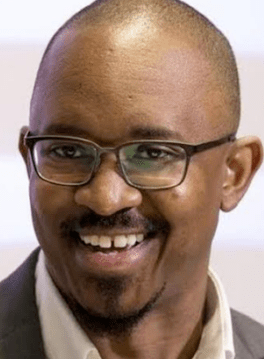 “Joshua Johnson (pictured) is getting his own show in prime time on NBC’s streaming service,” Dominick Mastrangelo reported Tuesday for The Hill. “The hourlong program, dubbed ‘NOW Tonight with Joshua Johnson,’ will air at 8 p.m. beginning on Monday, Dec. 6, and be available daily on The Roku Channel, YouTube TV, YouTube, Fubo, Xumo, Pluto, Tubi and the NBC News app. The network said the show will ‘take a step back’ to offer viewers context ‘into the why and the how behind the biggest stories of the day.’ . . .”
“Joshua Johnson (pictured) is getting his own show in prime time on NBC’s streaming service,” Dominick Mastrangelo reported Tuesday for The Hill. “The hourlong program, dubbed ‘NOW Tonight with Joshua Johnson,’ will air at 8 p.m. beginning on Monday, Dec. 6, and be available daily on The Roku Channel, YouTube TV, YouTube, Fubo, Xumo, Pluto, Tubi and the NBC News app. The network said the show will ‘take a step back’ to offer viewers context ‘into the why and the how behind the biggest stories of the day.’ . . .”
- “An analysis of newspaper and wire clippings by the Howard Center for Investigative Journalism at the University of Maryland found AP stories labeled Black lynching victims as fiends, ravishers and monsters in stories distributed to a national audience,” Tatyana Monnay and Eve Sampson reported Monday for the center’s “Printing Hate” project, intended as “a thorough exploration of the racist pasts of newspapers.” John Daniszewski, AP vice president and editor at large for standards, told the Center, “We know of no instance in which the AP deliberately promoted racist violence. “However, the AP reported on lynching and other forms of racial violence over many years, sometimes in disturbing detail with flaws and omissions. These shortcomings clearly reflected the attitudes and prejudices of the era in which these reports were written but that is no excuse and we regret them.”
- “She has been with the station since 1994: ‘Cancer was the last thing on my mind,‘” Rodney Ho reported Nov. 23 for the Atlanta Journal-Constitution. “Veteran Fox 5 reporter Aungelique Proctor announced she has stage 2 stomach cancer and is currently in treatment. Proctor, who has been with the station for 26 years, had taken time off this fall from work to deal with fatigue and stomach pain. That’s when the doctors discovered the tumor. . . .”
 The word “woke” has been distorted and co-opted, Jarvis DeBerry wrote Sunday for MSNBC. “It’s now white people’s word. ‘Woke’ and Black people have no future together. So don’t think of ‘woke’ as having anything to do with what Black people think. Think of it and ‘wokeism’ as having everything to do with what white people want the world to think Black people think.”
The word “woke” has been distorted and co-opted, Jarvis DeBerry wrote Sunday for MSNBC. “It’s now white people’s word. ‘Woke’ and Black people have no future together. So don’t think of ‘woke’ as having anything to do with what Black people think. Think of it and ‘wokeism’ as having everything to do with what white people want the world to think Black people think.”
- The discovery in southern Africa of Omicron, the latest COVID variant, has focused much needed attention on the need for developed countries to share their vaccines with Africa and the rest of the world in their own self-interest. In South Africa itself, though, a study of the news media found last month “that front page reports were mostly alarmist, sensationalist and negative in tone. Moreover, these reports did not see much possibility for individual agency in combating the pandemic.” The study, conducted by academics Herman Wasserman, Chikezie E. Uzuegbunam, Tanja Bosch and Wallace Chuma, said, “This finding is important as it suggests that South African newspapers could have contributed to public anxiety and fear.” They wrote Nov. 9 in The Conversation.
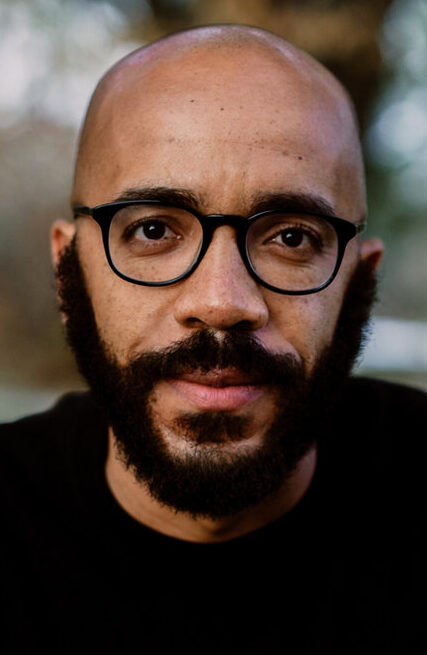 “How the Word Is Passed: A Reckoning With the History of Slavery Across America,” by Clint Smith (pictured), staff writer at The Atlantic, has made the New York Times Book Review’s list of “The 10 Best Books of 2021.”
“How the Word Is Passed: A Reckoning With the History of Slavery Across America,” by Clint Smith (pictured), staff writer at The Atlantic, has made the New York Times Book Review’s list of “The 10 Best Books of 2021.”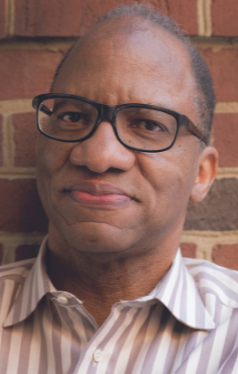 . . . Separately, “Colorization: One Hundred Years of Black Films in a White World,” by author and journalist Wil Haygood (pictured) was chosen by NPR movie critic Bob Mondello for his list of “Books We Love.”
. . . Separately, “Colorization: One Hundred Years of Black Films in a White World,” by author and journalist Wil Haygood (pictured) was chosen by NPR movie critic Bob Mondello for his list of “Books We Love.”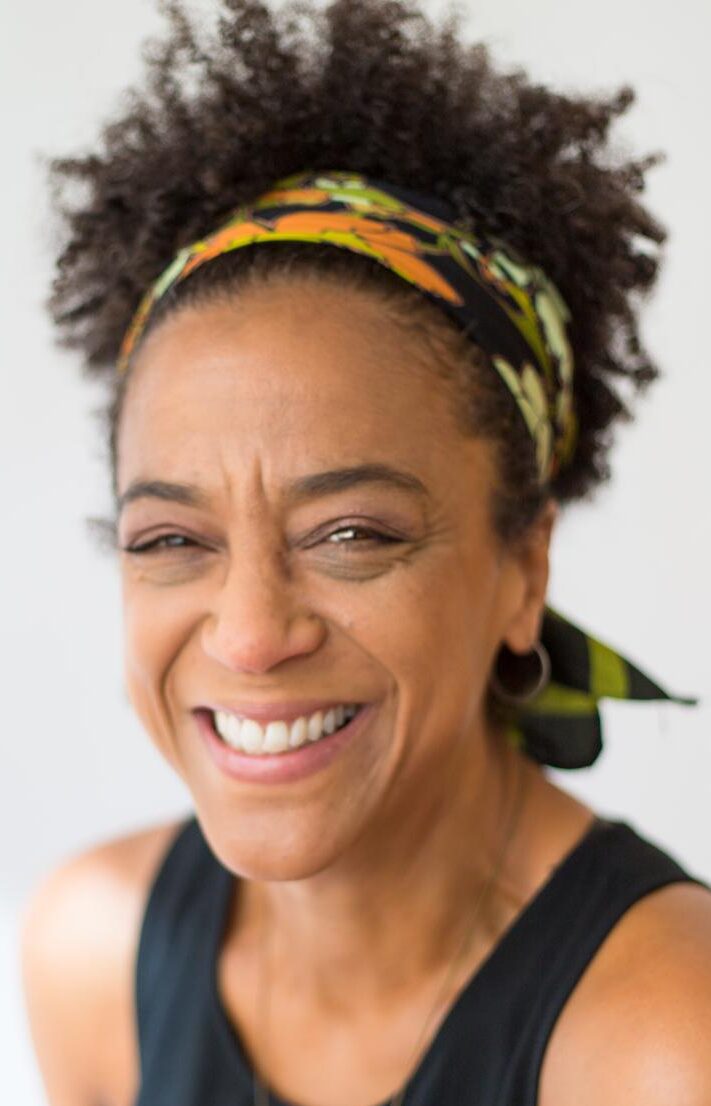 . . . Rebecca Carroll’s (pictured) memoir “Surviving the White Gaze” was named one of Kirkus Reviews’ “Best Nonfiction Books of the Year.” Carroll, a writer and social critic, is editor of special projects at New York’s WNYC. She is Black; her parents were white.
. . . Rebecca Carroll’s (pictured) memoir “Surviving the White Gaze” was named one of Kirkus Reviews’ “Best Nonfiction Books of the Year.” Carroll, a writer and social critic, is editor of special projects at New York’s WNYC. She is Black; her parents were white.
 In Minnesota, the Center for Economic Inclusion held a Zoom meeting in November with local leaders of Black-owned media to discuss promises to invest in those businesses in the wake of George Floyd’s murder. “Among corporations that made pledges are Target, General Mills, Nestle and DoorDash,” RB King reported Nov. 24 for the Minnesota Spokesman-Recorder. The headline was, “Corporations fail to honor pledges to Black media.” Asked to comment, Center founder and CEO Tawanna A. Black (pictured) messaged Journal-isms Thursday, in part, “We have begun individual discussions with corporations and will host meetings in December and January with corporations and Black-owned media outlets to further articulate the reasons why organizations who want Black talent, dollars, and engagement must partner with and advertise with Black media who are most trusted by our communities.”
In Minnesota, the Center for Economic Inclusion held a Zoom meeting in November with local leaders of Black-owned media to discuss promises to invest in those businesses in the wake of George Floyd’s murder. “Among corporations that made pledges are Target, General Mills, Nestle and DoorDash,” RB King reported Nov. 24 for the Minnesota Spokesman-Recorder. The headline was, “Corporations fail to honor pledges to Black media.” Asked to comment, Center founder and CEO Tawanna A. Black (pictured) messaged Journal-isms Thursday, in part, “We have begun individual discussions with corporations and will host meetings in December and January with corporations and Black-owned media outlets to further articulate the reasons why organizations who want Black talent, dollars, and engagement must partner with and advertise with Black media who are most trusted by our communities.”
- “Media mogul Byron Allen has sent an open letter to the U.S. Senate urging lawmakers to confirm Gigi Sohn as an FCC commissioner,” Jon Lafayette reported Monday for nexttv.com. Lafayette also noted, “Her nomination is opposed by broadcast executive Armstrong Williams.” Allen and Williams differ over whether Sohn would be good for greater media ownership by people of color.
- “I was surprised when in 2018 I received an ultimatum from the University of Arkansas’s Pulaski Technical College, a longtime advertiser: To continue receiving its ad dollars, we would have to certify in writing that our company was not engaged in a boycott of Israel,” Alan Leveritt, publisher of The Arkansas Times, wrote Nov. 22 for The New York Times. “It was puzzling. Our paper focuses on the virtues of Sims Bar-B-Que down on Broadway — why would we be required to sign a pledge regarding a country in the Middle East? I understood the context of that email. In 2017, Arkansas pledged to enforce support for Israel by mandating that public agencies not do business with contractors unless those contractors affirm that they do not boycott Israel.” Represented by the American Civil Liberties Union, the paper has sued to overturn the law on the grounds that it violates the First and 14th amendments.
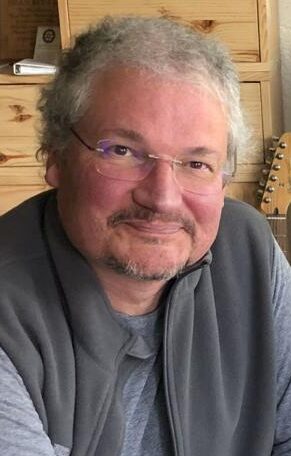 Sean Scully (pictured), outgoing editor of the Napa Valley (Calif.) Register, wrote Saturday that he had been frustrated “in our ability to build some diversity in the newsroom and forge connections with the growing Latino community. I tried several times to hire bilingual Hispanic journalists, but they are in high demand, and I simply wasn’t able to pay as much as larger papers such as the Press Democrat and Chronicle. I lost out on some good candidates. We did do a few projects in Spanish, particularly two health-related projects done in association with the Annenberg School of Communication and Journalism at USC, but I never quite figured out how to institutionalize our outreach to the Latino community in English or Spanish. . . .”
Sean Scully (pictured), outgoing editor of the Napa Valley (Calif.) Register, wrote Saturday that he had been frustrated “in our ability to build some diversity in the newsroom and forge connections with the growing Latino community. I tried several times to hire bilingual Hispanic journalists, but they are in high demand, and I simply wasn’t able to pay as much as larger papers such as the Press Democrat and Chronicle. I lost out on some good candidates. We did do a few projects in Spanish, particularly two health-related projects done in association with the Annenberg School of Communication and Journalism at USC, but I never quite figured out how to institutionalize our outreach to the Latino community in English or Spanish. . . .”
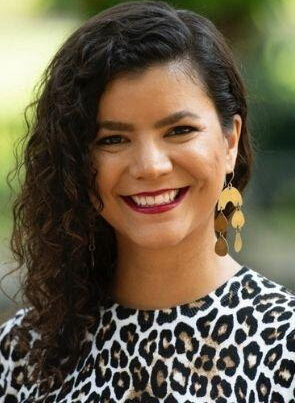 Maribel Lopez (pictured) has been named Head of PBS Digital Studios, the network announced Nov. 15. “In this role, she will oversee efforts to further drive content delivery and audience development across multiple digital platforms including, PBS’s YouTube channel. Lopez will begin the role on December 13 and will report directly to PBS Chief Programming Executive Sylvia Bugg. PBS Digital Studios offers original series and short-form content that explore science, arts, culture and more. . . .”
Maribel Lopez (pictured) has been named Head of PBS Digital Studios, the network announced Nov. 15. “In this role, she will oversee efforts to further drive content delivery and audience development across multiple digital platforms including, PBS’s YouTube channel. Lopez will begin the role on December 13 and will report directly to PBS Chief Programming Executive Sylvia Bugg. PBS Digital Studios offers original series and short-form content that explore science, arts, culture and more. . . .”
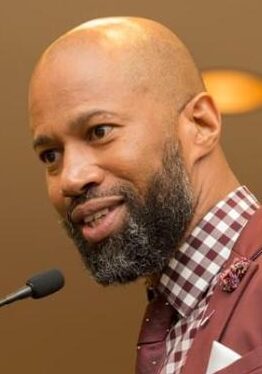 “So, in 2018 I was hired as an opinion writer for the The Kansas City Star Editorial Board,” Toriano Porter wrote Nov. 25 on LinkedIn. “The jump from breaking news reporter to opinion journalist was a challenge. In 2019 and 2020, I fell short of one of the goals laid out in my job description: 1 million page views per year. In fact, last year I reached 951,000 views; 49,000 short of my intended goal. This year, while working remotely (sometimes in cities such as St. Louis, Atlanta, Chicago, Cincinnati, Louisville, Dallas and Oklahoma City) I hit 1 million page views before Halloween. I don’t know what it all means but I do know that every click, subscription, and shared story mattered. And for that, I am thankful for you all. Remember to keep ya’ head down, do the work and trust the process. Also, continue to support local journalism. It really does make a difference. #unbreakable”
“So, in 2018 I was hired as an opinion writer for the The Kansas City Star Editorial Board,” Toriano Porter wrote Nov. 25 on LinkedIn. “The jump from breaking news reporter to opinion journalist was a challenge. In 2019 and 2020, I fell short of one of the goals laid out in my job description: 1 million page views per year. In fact, last year I reached 951,000 views; 49,000 short of my intended goal. This year, while working remotely (sometimes in cities such as St. Louis, Atlanta, Chicago, Cincinnati, Louisville, Dallas and Oklahoma City) I hit 1 million page views before Halloween. I don’t know what it all means but I do know that every click, subscription, and shared story mattered. And for that, I am thankful for you all. Remember to keep ya’ head down, do the work and trust the process. Also, continue to support local journalism. It really does make a difference. #unbreakable”
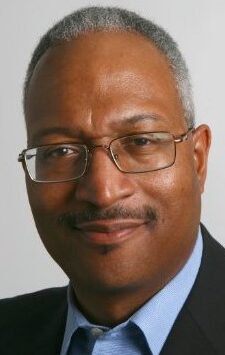 “More than a year ago, The Commercial Appeal expanded its coverage in Memphis’ Whitehaven area, part of our effort to better cover a city neighborhood we had long under-covered,” Editor Mark Russell (pictured) wrote readers last weekend. Russell also said, “Now we are turning to Frayser, an equally historic community with a legacy of community involvement and activism. We want to reflect the issues that are driving Frayser, from housing development to education. Although the 180-year-old CA was once called the newspaper you could trust in the Mid-South, we have too often failed to cover the full spectrum of life in predominantly Black communities. . . .”
“More than a year ago, The Commercial Appeal expanded its coverage in Memphis’ Whitehaven area, part of our effort to better cover a city neighborhood we had long under-covered,” Editor Mark Russell (pictured) wrote readers last weekend. Russell also said, “Now we are turning to Frayser, an equally historic community with a legacy of community involvement and activism. We want to reflect the issues that are driving Frayser, from housing development to education. Although the 180-year-old CA was once called the newspaper you could trust in the Mid-South, we have too often failed to cover the full spectrum of life in predominantly Black communities. . . .”
- “High school journalists across Chicago Public Schools are pushing back against a law they say has ‘hindered’ their ability to publish news,” Ava Thompson reported Nov. 2 for Block Club Chicago. “The law, called the Student Online Personal Protection Act, is meant to protect students’ data and give their parents control over how it’s used. But CPS added extra stipulations to it that some companies have not or can’t meet. . . .”
- “After sending out more than 1,000 public records requests to towns and police departments across the state, reporters obtained data from nearly 400 law enforcement agencies, allowing them to create a first-of-its-kind police diversity database,” Payton Guion, Riley Yates and Rodrigo Torrejon reported Nov. 17 for NJ.com. “However, about 120 law enforcement agencies either were unable to or refused to supply diversity data for their officers, despite state law requiring it to be done publicly by the start of 2022. . . .”
- “Since February, right-wing cable outlet One America News Network has revived some of its favorite white nationalist conspiracy theories, bigoted lies, and racial epithets in a series of incendiary segments targeting Indigenous people of North America,” Beatrice Mount wrote Nov. 24 for Media Matters for America. She also wrote, “In June, the network turned to full-fledged genocide denialism after ground-penetrating radar uncovered over 1,300 unmarked graves of First Nations, Métis, and Inuit children killed under Canada’s residential school policy. . . .”
 “A new landmark study shows most Canadian newsrooms remain overwhelmingly white even as immigration continues to redefine this country’s demographics, resulting in much public lament over the lack of diversity in the media,” Fernando Arce, Local Journalism Initiative reporter for New Canadian Media, wrote Nov. 25. “Described as ‘historic’ in terms of its scope and reach, a new race- and gender-based study from the Canadian Association of Journalists (CAJ) has found that ‘almost half of all Canadian newsrooms exclusively employ white journalists.’ ”
“A new landmark study shows most Canadian newsrooms remain overwhelmingly white even as immigration continues to redefine this country’s demographics, resulting in much public lament over the lack of diversity in the media,” Fernando Arce, Local Journalism Initiative reporter for New Canadian Media, wrote Nov. 25. “Described as ‘historic’ in terms of its scope and reach, a new race- and gender-based study from the Canadian Association of Journalists (CAJ) has found that ‘almost half of all Canadian newsrooms exclusively employ white journalists.’ ”
- “Ethiopia’s government has issued a new order aiming to restrict media reporting of the country’s yearlong war, prohibiting the sharing of non-official information on ‘military-related movements, battlefront results and situations,’” Cara Anna reported Friday for the Associated Press.
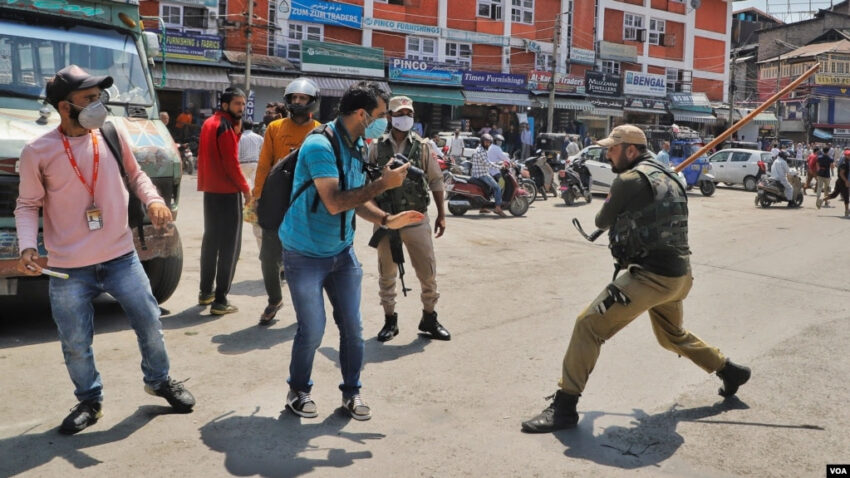
- “Indian journalists are denouncing the arrest of two colleagues who were charged with ‘spreading communal disharmony’ after they attempted to cover violent attacks on Muslims by Hindu activists in the Indian state of Tripura earlier this month,” Shaikh Azizur Rahman reported Nov. 23 for the Voice of America.
- “Independent journalism has always faced funding and safety problems in Nigeria, which have only escalated with the COVID-19-induced economic downturn and with the rise of non-state actors in armed activities,” Nigerian journalist Raheem Adedoyin, recently elected to the International Press Institute’s global Executive Board, told the group Monday. “The consolidation of Boko Haram, ISWAP [Islamic State West Africa Province] and other terrorist groups and the ascendancy of nationalist groups, some of which have taken to armed struggle in their secessionist quests, have made the practice of journalism a difficult undertaking in Nigeria. The patronage of traditional media has nosedived over the years, but now it is even more difficult to fund, and risky to do, investigative reporting. . . .”
- “The European Parliament on Thursday raised the alarm over Somalia’s legal environment for the media, describing it as restrictive and conducive for rogue elements to harass journalists,” Aggrey Mutambo reported Friday for Nation in Kenya. This year at least two journalists have been murdered by Al-Shabaab in Somalia.
- “The Association of Salvadoran Journalists says some news outlets have reported receiving alerts Wednesday from Apple Inc. warning of ‘possible spying’ on the part of the Salvadoran government,” the Associated Press reported Nov. 24. “The association said it had been informed of alerts sent to 23 journalists, including some at the investigative news outlet El Faro and newspapers like Diario El Mundo, El Diario de Hoy, La Prensa Gráfica. . . .”
- “Protesters fired live ammunition at journalists and the police on Thursday night on the French Caribbean island of Martinique, injuring dozens of officers, one of them seriously, a spokesman for the French government said,” Léontine Gallois reported Nov. 26 for The New York Times.
[btnsx id=”5768″]
To subscribe at no cost, please send an email to journal-isms+subscribe@groups.io and say who you are.
Facebook users: “Like” “Richard Prince’s Journal-isms” on Facebook.
Follow Richard Prince on Twitter @princeeditor
Richard Prince’s Journal-isms originates from Washington. It began in print before most of us knew what the internet was, and it would like to be referred to as a “column.” Any views expressed in the column are those of the person or organization quoted and not those of any other entity. Send tips, comments and concerns to Richard Prince at journal-isms+owner@
View previous columns (after Feb. 13, 2016).
View previous columns (before Feb. 13, 2016)
-
- Diversity’s Greatest Hits, 2018 (Jan. 4, 2019)
- Book Notes: Is Taking a Knee Really All That? (Dec. 20, 2018)
- Book Notes: Challenging ’45’ and Proudly Telling the Story (Dec. 18, 2018)
- Book Notes: Get Down With the Legends! (Dec. 11, 2018)
- Journalist Richard Prince w/Joe Madison (Sirius XM, April 18, 2018) (podcast)
- Richard Prince (journalist) (Wikipedia entry)
- February 2018 Podcast: Richard “Dick” Prince on the need for newsroom diversity (Gabriel Greschler, Student Press Law Center, Feb. 26, 2018)
- Diversity’s Greatest Hits, 2017 — Where Will They Take Us in the Year Ahead?
- Book Notes: Best Sellers, Uncovered Treasures, Overlooked History (Dec. 19, 2017)
- An advocate for diversity in the media is still pressing for representation, (Courtland Milloy, Washington Post, Nov. 28, 2017)
- Morgan Global Journalism Review: Journal-isms Journeys On (Aug. 31, 2017)
- Diversity’s Greatest Hits, 2016
- Book Notes: 16 Writers Dish About ‘Chelle,’ the First Lady
- Book Notes: From Coretta to Barack, and in Search of the Godfather
- Journal-isms’ Richard Prince Wants Your Ideas (FishbowlDC, Feb. 26, 2016)
- “JOURNAL-ISMS” IS LATEST TO BEAR BRUNT OF INDUSTRY’S ECONOMIC WOES (Feb. 19, 2016)
- Richard Prince with Charlayne Hunter-Gault, “PBS NewsHour,” “What stagnant diversity means for America’s newsrooms” (Dec. 15, 2015)
- Book Notes: Journalists Follow Their Passions
- Book Notes: Journalists Who Rocked Their World
- Book Notes: Hands Up! Read This!
- Book Notes: New Cosby Bio Looks Like a Best-Seller
- Journo-diversity advocate turns attention to Ezra Klein project (Erik Wemple, Washington Post, March 5, 2014)
When you shop @AmazonSmile, Amazon will make a donation to Journal-Isms Inc. https://t.co/OFkE3Gu0eK
— Richard Prince (@princeeditor) March 16, 2018
![]()


9 comments